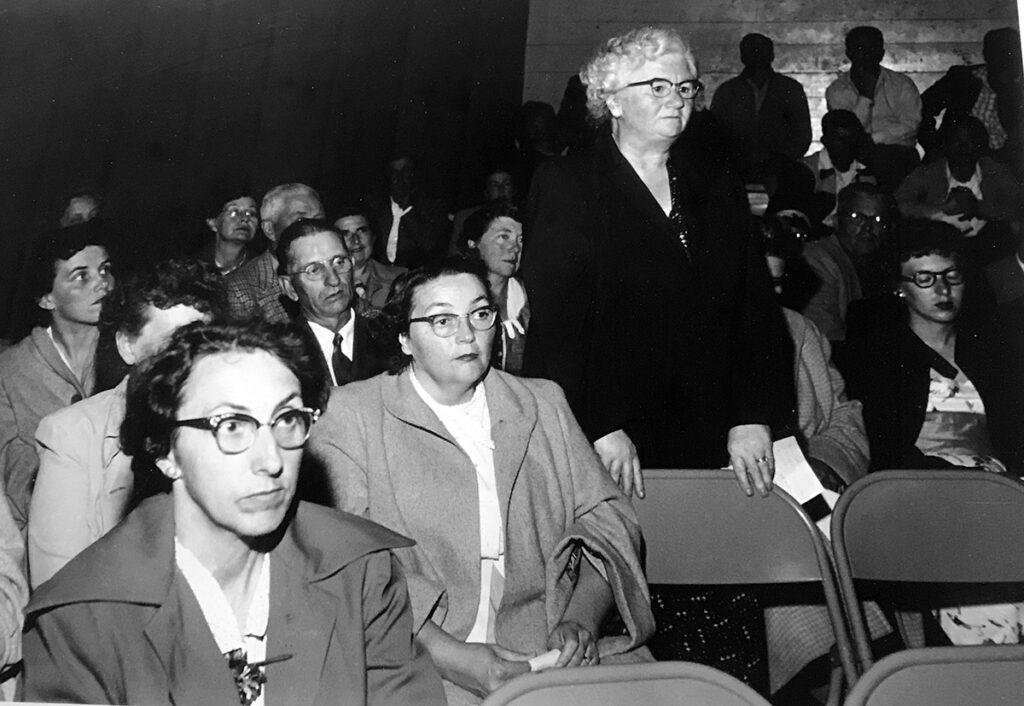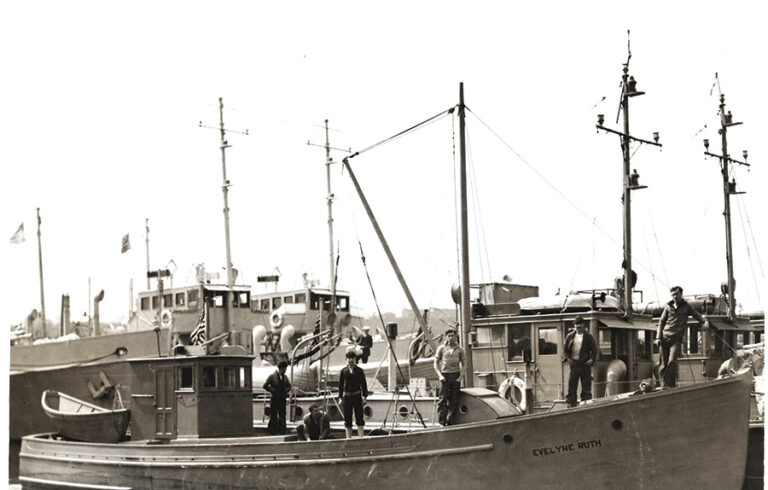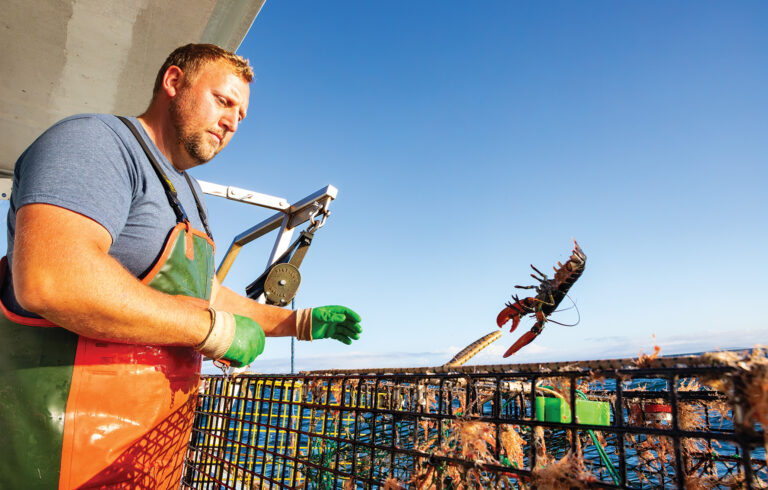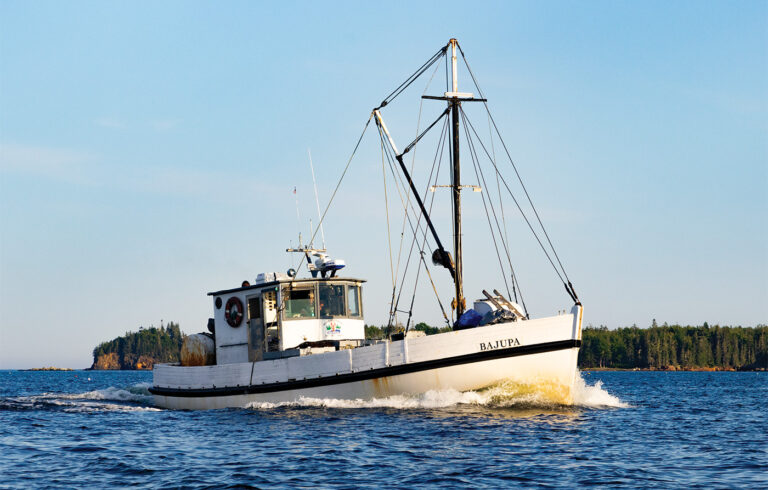
Around 1960 I attended a Vinalhaven town meeting as part of a high school class activity dealing with civic government. One item on the town’s agenda concerned the repair of a small bridge connecting two substantial (everything’s relevant) island land masses that were a couple hundred feet apart, but which were important to one another and needed to remain connected.
When the item came up for consideration, a certain fellow—an indigenous, beloved, and acknowledged island character—raised his hand. When recognized, he stood in truly astonished opposition, and observed, “You want to spend that kind of money on that dinky little bridge? Chrisake, I can piss from one side to the other.”
For a while his argument threatened to carry the day—it certainly carried most of the 200 or so in hysterical attendance for a while—but ultimately the motion to appropriate was favorably voted on.
Years later, the same fellow rose in by now familiar opposition to a modest appropriation for our treasured (by most of us) and bountiful Carnegie Library and, just as incredulous as he had been years before, earnestly objected: “Chrisake, ain’t nobody goes there.”
My dear mother, president of the Friends of the Library and in attendance to speak in favor of the appropriation, remained remarkably but typically composed—he was still beloved, after all, and unquestionably sincere. He hadn’t come to the town meeting to cause trouble; he’d come to play his role as a United States citizen in a democracy. The motion passed handily.
Back then, Vinalhaven’s downtown was an architectural wonderland, lorded over by three Second Empire Victorian structures, each three stories, and a third building, marginally more magnificent but lacking the Victorian’s mansard roof. This was the Memorial Hall.
The island’s post office took up half its ground floor, a retail space the other half. The second and third floors were one and gifted us with a spacious dance hall/theater complete with a commanding proscenium stage, full wings, sound, lights, ample backstage, and a stately meeting venue.
The town’s own orchestra, visiting musicians and soloists, the Vinalhaven Players, and traveling theater groups kept us all culturally nourished, amused, infused, and with a lot to talk about. Memorable town meetings such as the one just described were all day affairs, attended by 100 or more and complete with “dinner,” i.e. lunch.
Over the years since, I’ve served on several boards and committees, among them several terms on the board of selectmen—since morphed appropriately into the selectpersons or the select board—and sadly, interest in town affairs, and certainly in town meetings has steadily paled and the latter now bear no resemblance to those memorable events at the Memorial Hall.
Before email, before Facebook, TikTok, YouTube, and Instagram, opportunities for participation in town government were anticipated,
appreciated, pursued, and now and then contested. Today, however, consideration of the many important issues facing the community and in particular, consideration of how to spend the six million of the townspeople’s dollars, takes place among five people sitting around a table in a room that could hold many others but which on most occasions doesn’t, and the town meetings that follow these deliberations each year are attended by ever-dwindling numbers.
There were 14 adults at the last town meeting from among the thousand or so who live here. Apathy is rampant and the interest of the few who remain is usually sorted out and presumed to have been resolved online.
The last select board I served on was perfectly representative of the community; young and old, women and men, fishermen, and businesspersons. And it was overseen by a young chairman who was intimately familiar with parliamentary procedure and perfectly comfortable and capable of ruling the roost. There have been other select boards, including the current one, that have been equally broadly representative, but others have been woefully otherwise, and those to our great detriment.
Not too long ago the five-member board was a three-member board and before that there was no board at all. Rather, one individual took care of everything—but the board, five members or three, has historically worked well. Disagreement, even serious ones, resolve appropriately with the majority carrying the day and very few hard feelings prove residual.
A memorable and serious long-ago disagreement between myself and another selectman was an exception. It resulted in the two of us trading jabs quite profoundly in the island newsletter (The Wind) and even in The Working Waterfront, over the course of a year or so, much to the amusement of the community and, truth be known, eventually to the two of us as well.
The degree to which the board’s agenda has grown during the last half century is profound and reflects the community’s growing challenges. Unfortunately, the growing attention required by the five members of the board increases in parallel with the silly notion that disagreements can be resolved on social media instead of attending a board meeting or even registering complaints with individual board members or the town office.
And all that is so unfortunate because what this board does here and what boards in small communities elsewhere do is so entirely functional and representative of democracy as it was intended and so entirely unlike the shameful chaos in Washington that is so sadly and entirely otherwise.




